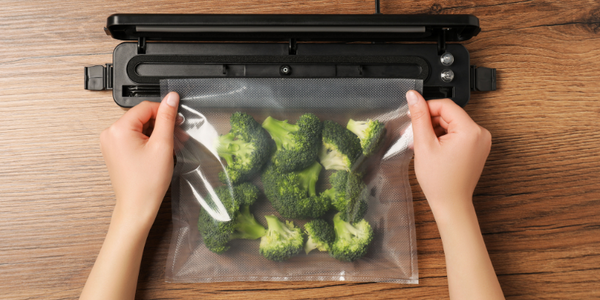Posted on July 29 2019

Whether you are interested in losing weight, saving money, saving time during the work week, or a combination, meal planning can be your secret weapon. Meal planning, a recent trend that has taken the fitness world and the Pinterest crowd by storm, is the simple act of planning out your meals, grocery shopping for those meals, and prepping them ahead of time. The goal of meal planning is to prevent overindulging in convenience food, which can wreak havoc on the waistline, save money by avoiding impulse purchases and minimize your meal prep time after work. So how do you effectively plan your meals?
Tip 1: Pick a Day of the Week that Works for You
Before you even begin meal planning, you need to strategize around your schedule. For many, planning for meals is a full-day affair, but it saves time over the long run. You may want to begin your planning on Sunday morning. The first step is to pick out meals that are going to work for you for the week moving forward using our free chart. Have options for breakfast, lunch, dinner and snacks. You can build in nights for leftovers, eating out, simple meals or breakfast for dinner. After you've planned your meals, it is time to make a grocery list. Take stock of the food you have on hand and make sure your grocery list includes everything you need for the recipes you want to make. Whether you have your groceries delivered by a service, or you shop in a brick and mortar location, a hard list of items you need will keep you on track, and help you avoid impulse purchases.
Tip 2: Pick Meals that Utilize Similar Ingredients
Picking meals for a full week that use similar ingredients will help you save money and time. For example, if you have three meals that include chicken, you can buy a family pack of chicken and prep the entire package ahead of your planned meals. A large bundle of chicken is often available at a discounted per pound rate, which means your per-meal cost will plummet. The same is true for vegetables that you can buy in bulk, like potatoes or cauliflower. Using ingredients more than once will also cut down on food waste. Store your unused ingredients for your next meal planning session with vacuum seal bags.
Tip 3: Plan Around Your Weekly Schedule
When you sit down to plan out your meals, keep your agenda or calendar close. To successfully meal plan, you will need to know your schedule for your week. If your son has a basketball game, or your daughter has ballet practice, you will want to plan for quick meals that you can make in advance. If you are planning a night out with your friends, you will want to avoid preparing dinner for that evening. Things come up in life, but if you have a general idea of how your week will progress planning meals will be much easier.
Tip 4: Prep Ahead of Time
After you've done your grocery shopping, you may find that prepping all the food for the upcoming week makes your life just a little easier. Cut up your vegetables and separate them into containers so you can grab them quickly when it is time to prepare the meal. You can measure your portion sizes ahead of time as well if that is important to you. For the morning rush, nutritional gurus often suggest creating a green smoothie in a jar that you just throw in the blender when you are ready to get your drink on. You may want to prepare hardboiled eggs or other quick-morning meals to make it easier to stay on your plan. There are many slow cooker meals that have all the ingredients in one vacuum sealed bag for cooking later. The amount of prep you choose to do is entirely dependent on your lifestyle and how seriously you take your meal planning. The process is flexible, and you don't have to follow any hard and fast rules.
Tip 5: Organize Your Recipes
Throwing in a new recipe every week can help to keep things fresh. Search the web for recipes or find some in our blog that are fresh and healthy and try them out for one meal. If you don't love them, you don't have to use them again. If the recipe worked for your family, add it to your "favorite meals" list and reference it when you need some food inspiration. Keeping track of your recipes and what you and your family found most enjoyable can make it far easier to plan for weeks in advance, if you prefer to do a more substantial shopping.
Tip 6: Have Backup Meals
You might change your mind on the scheduled day of cooking. Life happens or maybe your cravings change, you just want something different or possibly something faster. Prepare additional options just in case. You can always use the scheduled selection on a different day.
It's always a good time to get fit and stay that way. Meal planning can help you do just that. But meal planning is more about fighting the battle of the bulge. Individuals who meal plan find that they save money, feel better and have more time free to enjoy their life. The process also takes the stress out of mealtime and makes family dinner all about connecting with your loved ones. To make meal planning even easier you can download our meal planning charts for free below.
Related Posts

11 Plants To Keep Mosquitoes Away All Summer Long

The Six Rules To Follow When Buying In Bulk




0 comments